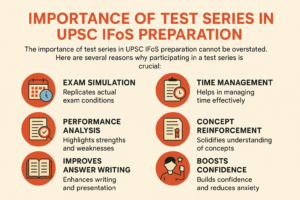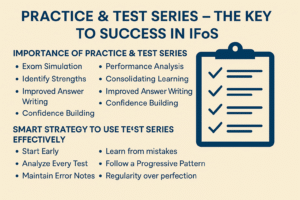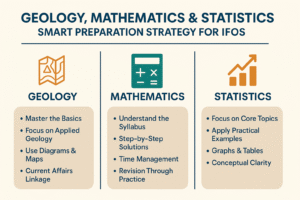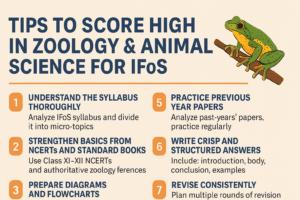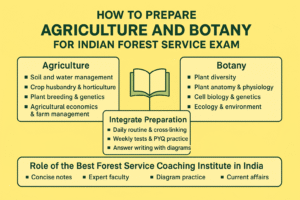Choosing the right optional subject for UPSC Mains is one of the most important decisions in a Civil Services aspirant’s journey. With 500 marks (two papers of 250 each) allotted to the optional, it plays a decisive role in the final rank and service allocation. Many aspirants succeed or fail in UPSC Mains purely based on their optional subject choice.
This guide will help you understand how to choose the right optional subject for UPSC with detailed factors, strategies, and FAQs.
IMPORTANCE OF CHOOSING THE RIGHT OPTIONAL SUBJECT
High Weightage – Optional carries nearly 25% of total Mains marks.
Rank-Determining Factor – Scoring well in optional can make up for average GS performance.
Influence in Interview – Knowledge of your optional often reflects in UPSC Personality Test questions.
Confidence Booster – A well-chosen optional builds confidence and reduces exam pressure.
FACTORS TO CONSIDER BEFORE CHOOSING YOUR OPTIONAL SUBJECT
1. Interest and Aptitude
Choose a subject you genuinely enjoy studying.
Interest ensures consistency and long-term commitment.
2. Academic Background
If your graduation subject is in the UPSC list (like Geography, Public Administration, History, Sociology, Law, Engineering, Medical Science), you may consider it.
Familiarity with concepts gives you an advantage.
3. Overlap with General Studies and Essay
Some optionals (History, Political Science & IR, Public Administration, Sociology, Geography, Anthropology) have significant overlap with GS Papers and Essay, reducing preparation time.
4. Length of the Syllabus
Subjects like History and Geography have vast syllabi, requiring more revision.
Optionals like Sociology, Anthropology, and Philosophy are relatively concise.
5. Availability of Resources and Guidance
Ensure good books, coaching, test series, and mentorship are available for the subject you choose.
6. Scoring Trends and Past Results
Analyze UPSC toppers’ optional subjects and scoring patterns.
Geography, PSIR, Sociology, Public Administration, and Anthropology are traditionally considered high-scoring.
7. Ability to Integrate Current Affairs
Subjects like PSIR, Public Administration, and Sociology benefit from current issues and case studies.
This makes your answers more relevant and fetches higher marks.
8. Medium of Writing (English or Regional Language)
Ensure sufficient resources are available in your chosen language.
STEP-BY-STEP GUIDE TO CHOOSE YOUR OPTIONAL
Go Through the UPSC Syllabus – Read the detailed syllabus of 3–4 subjects you are interested in.
Glance at Previous Year Papers – Understand the type of questions asked.
Check Availability of Study Material & Coaching – Ensure reliable sources exist.
Evaluate Your Strengths – Choose based on aptitude, not peer pressure.
Do a 10-Day Trial Reading – Start with NCERTs or basics of 2–3 shortlisted subjects before finalizing.
POPULAR OPTIONAL SUBJECTS IN UPSC
Geography – Logical, scientific, overlaps with GS, but vast.
Public Administration – Compact, overlaps with GS-II & Governance.
Political Science & IR (PSIR) – Overlaps with GS-II, Essay, and Current Affairs.
Sociology – Concise syllabus, useful for GS and Essay.
Anthropology – High-scoring, short syllabus, good for science students.
History – Overlaps with GS-I, but syllabus is lengthy.
Philosophy – Very short syllabus, conceptual clarity needed.
TIPS FOR MAXIMIZING OPTIONAL SCORE
Answer Writing Practice – Daily 3–4 answers + test series.
Use Diagrams, Maps, Flowcharts – Improves presentation.
Quote Thinkers, Reports, Case Studies – Adds value to answers.
Link Theory with Current Affairs – Shows analytical depth.
Revision – Revise the entire syllabus 3–4 times before Mains.
FAQS ON CHOOSING THE RIGHT OPTIONAL SUBJECT FOR UPSC
Q1. HOW MANY OPTIONAL SUBJECTS ARE THERE IN UPSC?
There are 48 optionals (25 core subjects + 23 literature subjects).
Q2. WHICH OPTIONAL SUBJECT IS BEST FOR UPSC?
There is no single best optional. Popular choices include Geography, Sociology, PSIR, Public Administration, Anthropology, and History.
Q3. CAN I CHOOSE AN OPTIONAL DIFFERENT FROM MY GRADUATION SUBJECT?
Yes. Many toppers select subjects unrelated to their degree and succeed.
Q4. WHICH OPTIONAL HAS THE SHORTEST SYLLABUS?
Philosophy, Sociology, and Anthropology are considered relatively concise.
Q5. WHICH OPTIONAL SUBJECT IS MOST SCORING?
Anthropology, Sociology, PSIR, and Public Administration are considered high-scoring, but success depends on preparation and answer writing.
Q6. HOW LONG DOES IT TAKE TO COMPLETE OPTIONAL PREPARATION?
Generally, 4–6 months of dedicated study is needed.
Q7. HOW MUCH DOES OPTIONAL HELP IN GS AND ESSAY PAPERS?
Subjects like History, Sociology, Public Administration, and PSIR provide significant overlap, saving preparation time.
FINAL WORDS
Choosing the right optional subject for UPSC requires careful evaluation of your interest, aptitude, syllabus length, GS overlap, and resource availability. Instead of following trends blindly, aspirants should make an informed decision based on their strengths. With the right choice, dedicated study, and consistent answer writing practice, the optional can become a game-changer in UPSC Mains and help you secure a top rank.



